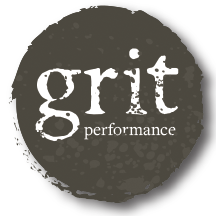Managing plateaus
Here's the good news and the bad news about plateaus - they are part of the process, part of the deal you signed onto when you decided to train and set goals. it would be impossible for an athlete to move onward and upward constantly - dropping times, getting faster, placing better EVERY time they set out to race. So a plateau is what happens in order to set up for another gain. it means your body is maintaining while you work smarter and harder for future events. Now that sounds so pretty and nice - but anyone who has gone thru a lengthy plateau knows how frustrating they can be. There is no set amount of time that a plateau lasts for - but for elite athletes it tends to last longer than novices since they are improving in incremental amounts as opposed to a beginner who changes in leaps and bounds. Let's take a look at what goes into assessing a plateau to see how it can be shortened or if something else is going on.
1. Rule out any physical causes - what's your nutrition like, how are you sleeping, have you been recovering from an injury. These are all valid reasons why your performance level might be leveling out for the moment.
2. OVERTRAINING - this is BEND we ALL overtrain. any town where you can go nordic in the morning, bike in the afternoon and get a yoga class in before dinner is a town prone to over trainers…If you have energy and bounce when you train but are still not making the improvements in races then that's probably a positive plateau - you're body and brain are just gathering data to improve. But if you're getting feelings of dread or lethargy when you ride hard and it feels lifeless then those are signs that you're not getting the rest you need or that you need to make adjustments to your training program. Overtraining actually depresses an athlete's ability to prepare for those times when maximum effort is needed. Sometimes we do the opposite of what we really need when we are plateau-ing - we up the workouts, add a run in to get stronger, find something to do on our days off - this actually sets you back. Take a look at how you train - there's a difference between training effort and competition effort. Training effort should include reachable times that are tough and require effort but aren't a constant strain; Competetion effort is considerably more effort - this is when you leave everything on the course - but we save it for race day. If you are training at competition effort you're going to have a tendency to overstrain and possibly extend that plateau.
3. Mental part - as athletes we can get mentally blocked in reaching our goal - we start to notice sticky thoughts when we race - any of these ever pop up? I'm not supposed to be this far in front, My friend/teammate/opponent is way faster than I am - what am i doing here? I'm never here for the first lap - what's going on?, Looking at the limitations we impose on ourselves is vital when we race - what happens when you are pushing up against your self imposed limits - it creates anxiety worry and self doubt because it's new for the brain! identifying what the lingering doubts is necessary to move to the next level (and can be holding you at a plateau) - TELL THE MATT AND JEN STORY OF GOALS. This is more of the work i do 1:1 because it is so fine tuning and individual. and often past experiences of success and struggles come up as well - how we've dealt with them before can set pavement for how we deal with pushing limits when we race.
Now that you've identified where the plateau might be coming from, what can you do?
1. Stop doing what you have been doing and try something else - change your events up, put the marathon away for a season and focus on some halfs, or 10k's. This gives your brain a chance to process the information it's been flooded with. It lets the brain relax thru another distraction. We tend to get overloaded with sensory stimuli - all the sounds, feelings, directions and visual info that is involved in whatever our sport is gets tough after awhile. Changing direction for awhile lets the mind purge the negative thinking and performances and push pause - it allows you to forget some of the negative habits that can occur with poor performances and sticky thoughts.
2. Try adjusting your training volume. The general rule is to increase or decrease your training by 10%, depending if you are subject to overtraining or not training to your full necessity for your goals.
3. Create situations in practice to build confidence in order to get to the next break thru. this means taking a look at your training and finding ways to increase the difficulty thru situations. This includes doing sprints or hills at the end of practice, running at times you might not usually run (in the evening or early am), negative splitting at a track workout
Whatever you chose to do , you are looking for opportunities to shake things up for your brain and your mind, kind of like hitting a reset button.
